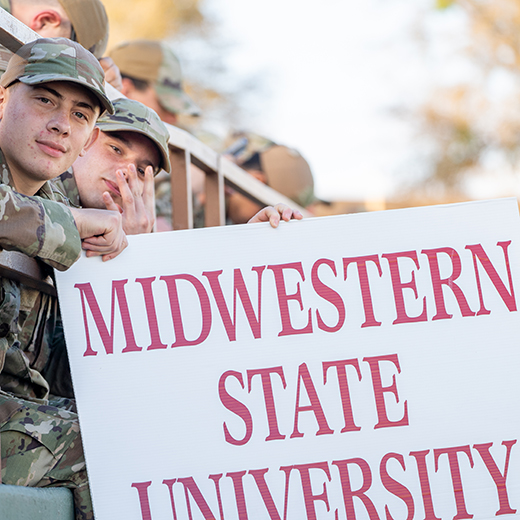
How Will You Pay for College?
Are you worried about paying for college? You are not alone. Paying tuition and fees is one of the most intimidating parts of attending college, but it does not have to be overwhelming. With smart planning and a little bit of creativity, anyone can work toward affording their degree. Whether you are already enrolled or still in high school trying to figure out how to make your dream a reality, we are here to help you navigate through our financial aid options.Expand Your Financial Aid Package
One of the best ways to reduce your out-of-pocket college costs is to diversify your financial aid package. The more money you are able to secure through other types of financial aid such as scholarships, grants, and work-study, the less reliant on student loans you will need to be.
That said, if student loans are in your future, we encourage you to learn more about responsible borrowing and about the many loan forgiveness options that exist.
Work as You Learn
Whether you plan to work full time or on a part-time basis as you earn your degree, we have resources to help you find meaningful employment.Check Out Additional Resources
Employer Assistance Programs
Exemptions & Waivers
You may qualify to apply for a book loan if your financial aid refund check is less than $1,000 or if you are not receiving financial aid but still need help in order to afford your textbooks for the semseter.
(Note: The following link will have applicaton information available only during the time we are accepting applications.)
The Net Price Calculator (NPC) is intended to help current and prospective students and families estimate the "net price" for a student attending an institution of higher education and allows the student to compare "net price" for one or more institutions. The NPC is intended to provide more useful consumer information regarding college costs AFTER financial aid is taken into consideration and provides more information than just the Cost of Attendance (or, 'sticker price') of the institution.
- the NPC is NOT a financial aid packaging tool; it is NOT intended to calculate an individual’s exact net price;
- The NPC data encompasses aid for freshmen students who are enrolled full-time (12 hours or more) AND who are awarded no later than March 1;
- the NPC data is comprised of different Types of Aid to include 'need-based' grants and student loans as well as ‘non need-based aid’ such as academic and athletic scholarships;
- the NPC data does NOT take into consideration awards that are not offered to our students at the time of initial awarding, such as the College Access Loans and Alternative Private Loans.
Remember, the NPC is ONLY AN ESTIMATE.
Types of Financial Aid FAQs
What is the difference between grants, scholarships, and loans?
In the simplest terms:
- Grants: Qualify for aid based on financial need. No need to repay. Available from government or institutions.
- Scholarships: Earn aid based on achievements, talents, or involvement. No repayment required. Offered by university or organizations.
- Student Loans: Consider as an option; separate from grants/scholarships. Repayment and interest involved. Obtain from government or private lenders. Understand terms and responsibilities before borrowing.
Can I receive financial aid if I am an international student?
Can I receive financial aid if I am enrolled part-time?
Yes, some financial aid sources will still pay out to those enrolled part-time — including the Federal Pell Grant and student loans — but your cost of attendance will be adjusted to account for the reduced need.
It is important to review your renewal and eligibility requirements before reducing your enrollment status below full time. Please speak to a financial aid counselor prior to making this decision to see how your financial aid package will be impacted.
How is financial need determined and what factors are considered?
Your financial need is the difference between the cost of attendance at MSU Texas (COA) and your Expected Family Contribution (EFC).
The cost of attendance is the total estimated expenses that you can anticipate during your academic year at a college or university. It covers various aspects, including direct costs like tuition, fees, and on-campus housing, as well as indirect expenses such as textbooks, supplies, transportation, and personal needs.
Your Expected Family Contribution is the amount that you and your family are expected to contribute toward your cost of attendance. This is calculated by the federal government and is based on your FAFSA responses.
Are there any deadlines for financial aid and, if so, what happens if I miss them?
There are priority deadlines that you should aim to meet. These are March 1 for those wishing to start in the fall or summer, and October 1 for those planning to start classes in the spring.
You are able to submit your financial applications up until August 15 for the fall term, December 15 for the spring term or April 15 for summer terms. But please note that all financial aid is limited and you may miss out on receiving all that you would have qualified for had you submitted your application by the priority date.
We are located in the Hardin Administration Building (South Wing), Room 102.
(Building 24 on the Campus Map)
Campus Map






